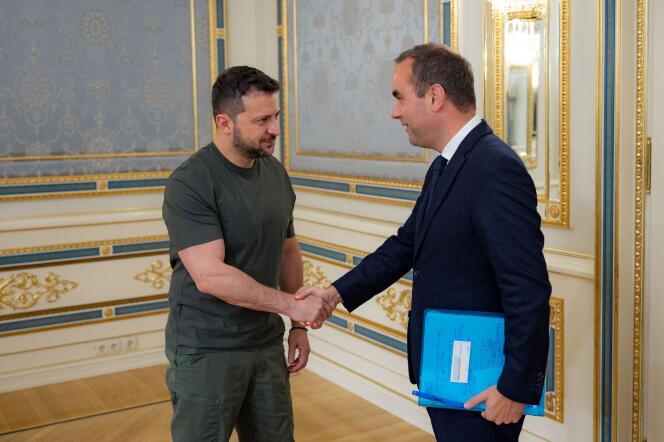


On Thursday, September 28, the French defense industry engaged in an unprecedented promotional exercise in Kyiv. Minister of Armed Forces Sébastien Lecornu, accompanied by around 20 manufacturers, visited the capital of Ukraine for the first edition of an arms forum. The objective of this forum was to review the terms of French military support to Ukraine, as the war continued, and as stocks dwindled both in France and among other Western allies.
"Transfers [free of charge] cannot be made indefinitely," the minister said during this visit, where he met with President Volodymyr Zelensky and his new defense counterpart, Rustem Umerov, appointed on September 6 following the removal of his predecessor due to corruption. "We have reached a point where we must pivot. Industrial partnership should become the norm, while transfers should be the exception," said sources close to the minister.
A "pivot" that is far from straightforward for French manufacturers. Despite being the third-largest arms exporter globally, France is not as well positioned in Ukraine as the United States, the United Kingdom or Germany, which have been investing in the region for years. These countries also made faster decisions regarding diplomatic support for Kyiv and arms deliveries at the onset of the war, placing them in a stronger position today.
In this context, various major European groups have announced their plans to open factories on Ukrainian soil since the summer. This includes the British company BAE Systems for the production of small arms and the German conglomerate Rheinmetall for tank repairs. These announcements highlight the shift taking place in the support for Ukraine.
While Kyiv aspires to eventually have one of Europe’s top armies and aims to develop its own defense industry to protect itself from a potential future Russian attack, opinions among manufacturers are divided regarding the opportunities to enter the Ukrainian defense market. This market, currently undergoing restructuring, remains highly susceptible to corruption and, despite Lecornu’s determination, some business leaders are questioning whether it is wise to invest given the risks of having their expertise exploited or stolen.
"It’s necessary to come [to Kyiv], but we must not be naive," said one business leader, who wished to remain anonymous. "If it’s not us providing them with [the equipment], it will be someone else," said Raoul Barthez, CEO of Dixi, who produces rockets for artillery ammunition and has already initiated discussions with the Ukrainians. "We decide what we share and what we don’t," he added. "The war doesn’t completely overshadow the duty of vigilance," Lecornu affirmed.
You have 40.74% of this article left to read. The rest is for subscribers only.
